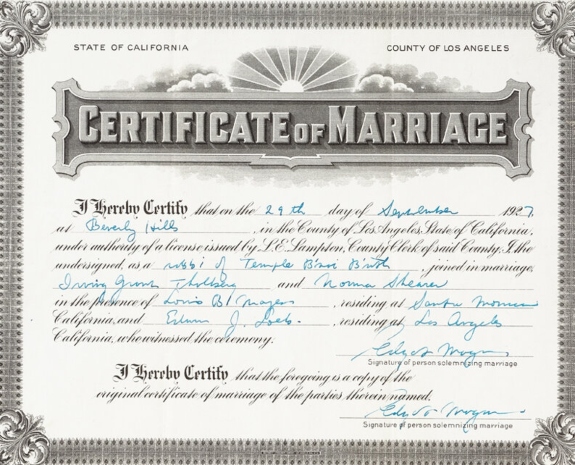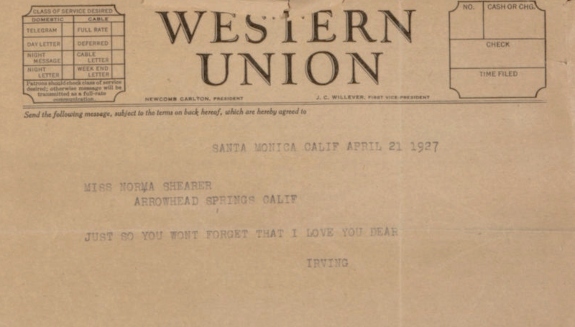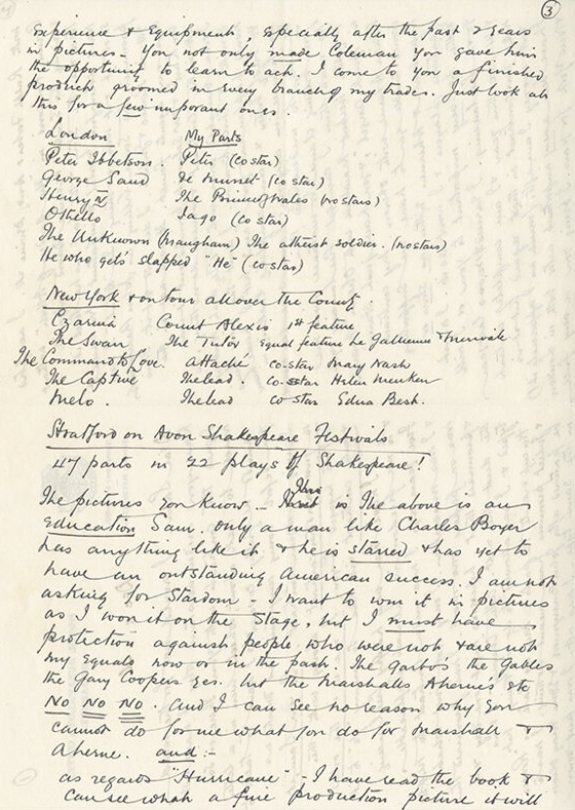By the mid-1920s, Norma Shearer was one of MGM's biggest stars and had every intention to remain one. For that purpose she regularly visited the office of Irving Thalberg (head of production at MGM), complaining about the routine films in which she was cast and pleading to be given better roles. Thalberg listened to Norma's complaints but said that MGM knew best and that the films they had chosen for her had ultimately made her a star.
Attracted from the start by Thalberg's charm and commanding presence, Norma soon became romantically interested in her boss. While Thalberg didn't feel the same way about Norma, the two started going out together from July 1925 onwards (their first public appearance together was at the premiere of Charlie Chaplin's The Gold Rush). At the time Thalberg was still involved with Constance Talmadge and Rosabelle Laemmle, yet on occasion asked Norma to be his date. "When Rosabelle or Constance are away, or someone stands him up, I'm always available. I'll break a date any time to be with him", Norma had said to Irene Selznick, referring to herself as "Irving's spare tire". Norma waited patiently, which eventually paid off. After dating on and off for two years, she and Irving were married on 29 September 1927 and had two children, Irving Jr. (b. 1930) and Katharine (b. 1935). The marriage lasted until 1936 when Thalberg suddenly died as a result of a congenital heart defect, aged 37.
DEAREST CUTEST SWEETNESS DARLING ANGEL BUNNY HOPE YOU HAVE MISSED ME AS I HAVE MISSED YOU LOVE PAPA
HAVE FORD TRUCK FROM STUDIO MEET US PASADENA FIND OUT HOW LATE TRAIN IS SO LITTLE CUTIE DON'T WAIT LOVE=IRVING
Source: Bonhams
 |
| In order to marry Thalberg, Norma first converted to Judaism. The couple married at the Temple B'nai Brith in Beverly Hills. Above is their certifcate of marriage, dated 29 September 1927. Witnesses to the wedding were MGM boss Louis B. Mayer and studio attorney Edwin J. Loeb. (Source: Heritage Auctions) |













